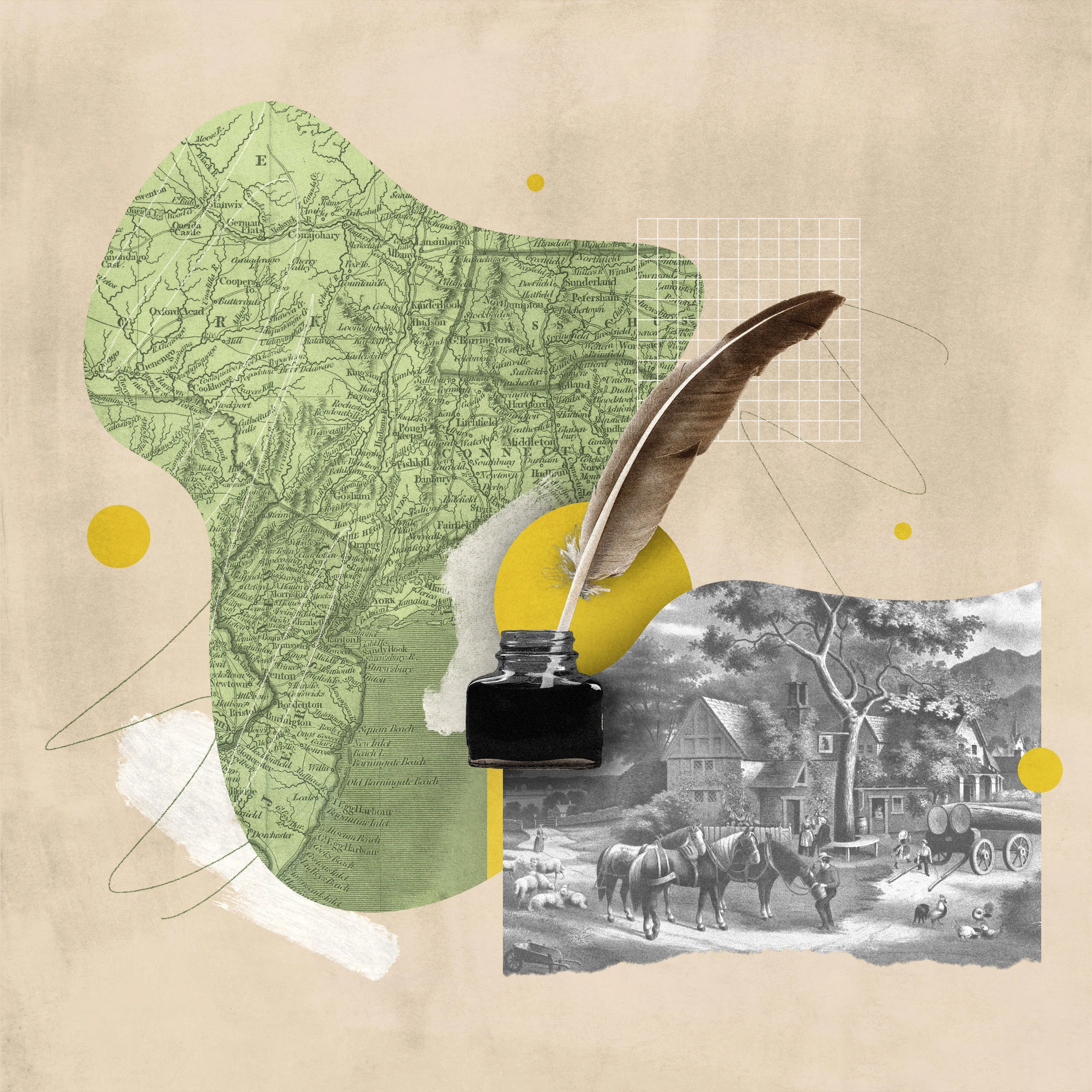Who Was David Brainerd?

On a spring day in 1747, mounted on his horse, a frail twenty-nine year old David Brainerd (1718–1747) rode into the yard of the Northampton parsonage of New England pastor Jonathan Edwards. Before this day, Brainerd and Edwards were relative strangers to one another. However, the summer of 1747 nurtured a growing friendship between the two men culminating in one of the most influential missionary biographies in the history of American evangelicalism.
Childhood and Unspeakable Glory
Born on Easter Sunday, April 20, 1718, in Haddam, Connecticut, David was one of nine children born to Hezekiah and Dorothy Brainerd. The Brainerd family were descendants of a long line of men and women noteworthy for their religious zeal. It was said that David’s father, Hezekiah, was a man of “great personal dignity and self-restraint . . . and of extreme scrupulousness in the Christian life.”
As in most eighteenth century New England families with Puritan lineage, David and his eight siblings attended daily family worship consisting of Scripture readings and the singing of psalms. In addition, numerous chores around the house and farm awaited as they rose very early each morning.
David’s father died when he was only nine years old. A month before his fourteenth birthday, his mother died, which left young David incredibly distraught. Vividly depicted in his voluminous diaries, from this point until the end of his life, David experienced the dichotomy of living with the constant fluctuation between overwhelming joy and spiritual darkness. After the death of his mother, David moved to East Haddam to live with his sister. When he turned nineteen, he inherited a farm, but after only one year of farming, he decided education was vital for his preparation to enter the Christian ministry. He returned to East Haddam but remained unconverted. However, on the Lord’s Day, July 12, 1739, after a long battle with his resistance to the doctrines of the sovereignty of God and original sin, Brainerd wrote:
The Lord, I trust, brought me to a hearty desire to exalt him, to set him on the throne and to “seek first his Kingdom,” i.e. principally and ultimately to aim at his honor and glory as the King and sovereign of the universe, which is the foundation of the religion of Jesus . . . I felt myself in a new world.
David had experienced an “unspeakable glory” within his soul. He was twenty-one years old.
Yale College and Awakening
In early September 1739, only two months after his conversion, Brainerd entered Yale College in New Haven, Connecticut. During his first year, he contracted measles, which sent him home for several weeks. In his second year, he began to spit up blood, an early warning sign of tuberculosis. The disease would eventually take his life.
He first experienced the flames of revival in 1741 under the ministries of George Whitefield, the fiery evangelist from England, and Gilbert Tennent, a Presbyterian pastor from New Brunswick, New Jersey. Brainerd was soon labeled a “new light” after demonstrating a particular interest in the fervor of the Great Awakening that had become widespread throughout New England. A commencement address in 1741 at Yale by Jonathan Edwards invited further criticism from the faculty, who were increasingly opposed to the Great Awakening. Edwards argued that the Great Awakening had been sent from God and gave credibility to the students in the college who had experienced revival.
Though a short life, David Brainerd stands in the pantheon of believers mightily used by God.
In 1742, fueled by revival zeal, Brainerd was expelled from Yale for his remark that a tutor in the college had no more grace than a chair. Yet, despite the controversy surrounding him at Yale, Brainerd wrote of his spiritual maturity and growth during this period:
One day I remember in particular (I think it was in June 1740) I walked to a considerable distance from the college, in the fields alone at noon, and in prayer found such unspeakable sweetness and delight in God, that I thought, if I must continue still in this evil world, I wanted always to be there, to behold God’s glory: My soul dearly loved all mankind, and longed exceedingly that they should enjoy what I enjoyed. It seemed to be a little resemblance of heaven.
Missionary to the American Indians
Unable to complete his formal education, Brainerd sought other opportunities to fulfill his ministerial calling. After receiving a license to preach, he was approved for missionary work on November 25, 1742. He was sent to a small church on Long Island, which served as a doorway to the vast New England wilderness the following spring. From 1743 to 1747, he served American Indian tribes near Stockbridge, Massachusetts, and at the Forks of the Delaware River. In 1745, he began preaching to the American Indians at Crossweeksung, New Jersey.
It was here that God brought awakening to the American Indians, adding more than one hundred to Brainerd’s growing congregation. While experiencing sickness, extreme hardship, and loneliness, Brainerd often took up his pen to write of his increased love for the American Indians under his ministerial care. His heart longed to show them the glory of Christ through the preaching and teaching of Scripture. He spent hours in prayer, asking God to bring about their salvation and growth in Christ.
However, his time among the American Indian tribes of New England was mingled with periods of severe depression and sickness. His diary is filled with entries chronicling these spiritual and physical battles. Finally, having no choice but to leave his missionary endeavors because of his unforgiving battles with sickness, Brainerd made a final visit to his American Indian friends in early 1747 and then rode to the house of Jonathan Edwards in Northampton, arriving on May 28. Under the care of Edwards’ daughter, Brainerd died in the Edwards’ home from tuberculosis on October 9, 1747, at twenty-nine years old.
Impact
After his death, Edwards discovered Brainerd’s diaries and believed they would be of immense value to the broader Christian world. In 1749, with an introduction, Edwards published the journals as The Life and Diary of the Rev. David Brainerd. Missionaries Henry Martyn, William Carey, and countless others have devoured Brainerd’s diaries as encouragement of what God can accomplish through frail but willing vessels of mercy. Though a short life, David Brainerd stands in the pantheon of believers mightily used by God.


